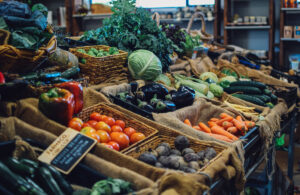
Article
Unsure about that ingredient list on the packet of your favourite plant-based meat alternative? This should clear up a few things…
The ‘whole foods, plant-based’ diet is often touted for being the most, well, wholesome way to nourish yourself. And for good reason! The general rule of thumb is that we should eat foods that are as close to their raw, natural (whole) form as possible. So if you’re trying to reduce your meat consumption for the sake of improving your health, you may be wondering whether it’s truly healthier to opt for the veggie sausage with 12 plant-based ingredients packed into it.
(Spoiler alert: It usually is!)
Here to set the record straight is a new study published by non-profit alternative protein think tank, Food Frontier, which analysed the nutritional information of nearly a hundred meat alternative products in Australia and New Zealand, comparing them to their animal-derived counterparts. The Age covered the recent findings, noting that:
Plant-based versions have, on average, much less saturated fat, more or comparable protein and lower or similar kilojoules and sodium. They are also a source of dietary fibre, which meat is not.
Veggie burger lovers, rejoice! Sure, a plate full of whole vegetables might be the healthiest thing you can eat, but if a burger is what you’re craving, you can rest assured that you’re doing your body a favour by choosing the plant-based one 🙂
It’s worth noting that not all meat alternatives are created equal. If your biggest concern is taste, easy — do some taste testing of different products and see what suits your palate best. If health is your motivation for choosing plant-based, then simply take a moment to peruse and compare ingredient lists. Report co-author and dietitian Teri Lichtenstein suggests looking for “a health star rating of at least 3.5 and one that has the least amount of sodium and the greatest amount of dietary fibre.”
And in case anyone forgot why we were here in the first place, the article kindly reminds us,
Australians ate just over double the amount of recommended red meat in 2019. Overconsumption of processed and red meats is linked to illnesses like type two diabetes and heart disease.
So if those processed meats are less welcome at your dinner table these days, then processed vegetables are, without a doubt, a significant upgrade. ![]()

Maggie’s passion for fresh, local produce began in the 90s when she first harvested the oranges in her backyard for a glass of fresh-squeezed Florida orange juice — though her Dad may remember the details of labour a little differently. Now she adds berries to her chocolate and sneaks pumpkin into brownies so she can confidently and incorrectly refer to them as health foods.